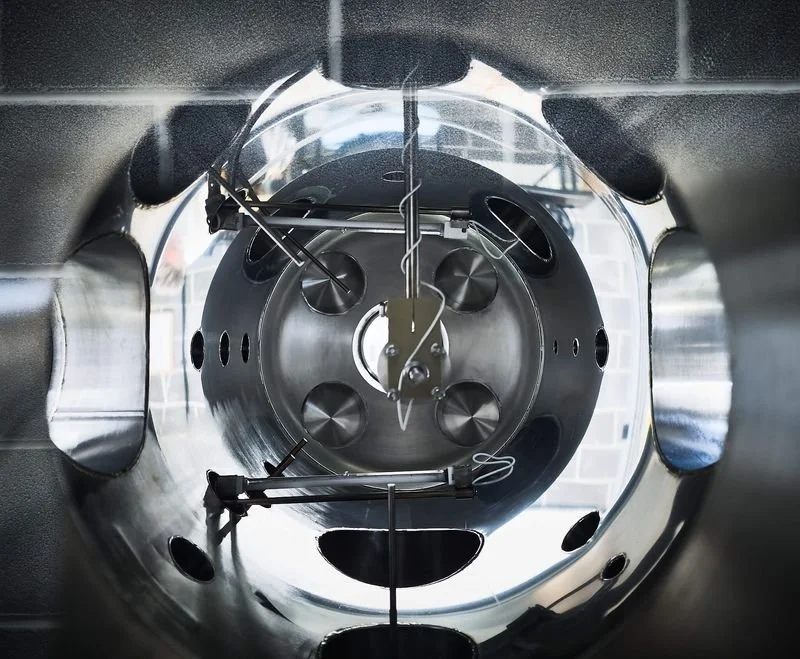Astral Systems’ Milestones Highlight Startups’ Role in Fusion’s Future
For decades, fusion has been the energy source that's "forever 30 years away". The industry has been defined by massive promises, long development cycles, and billion-dollar burn rates. But in August 2025, Astral Systems showed that the future doesn’t have to wait. Instead of chasing only grid-scale power, the company is building a model where fusion delivers value now, solving urgent healthcare challenges, creating jobs, and proving commercial traction. This isn't just about a scientific breakthrough; it's a strategic masterclass in bringing a revolutionary technology to market.
The Fuel Problem Fusion Can Solve
One of the most significant barriers to fusion commercialization has been fuel. Tritium, a rare isotope of hydrogen needed for efficient fusion, exists in quantities of less than 20 kg worldwide and is rapidly declining. Without a scalable supply, even the most advanced reactors risk being stranded assets.
In a landmark achievement, Astral Systems, in partnership with the University of Bristol and with support from the UK Atomic Energy Authority, became the first commercial fusion company to successfully breed tritium in-house. This breakthrough was accomplished during a 55-hour irradiation campaign in March 2025, during which the company's Multi-State Fusion (MSF) reactor generated neutrons that were captured by a lithium "blanket," resulting in the real-time formation of tritium. This isn't just a technical win; it addresses one of the industry's greatest strategic risks and signals to investors and policymakers that fuel sustainability is within reach.
Smart Capital, Smarter Strategy
While the global fusion sector saw a record $2.64 billion in private investment in the year leading up to July 2025, most of this funding has gone to moonshot projects with commercialization targets in the 2030s. Astral is taking a different route with a more capital-efficient approach.
Focused Fundraising: The company secured over €5.3 million in February 2025, a strategic capital infusion led by prominent venture capital firms Speedinvest and Playfair.
Strategic Investors: The funding round included notable strategic angels, such as Oliver Buck, a founder of ITM Isotope Technologies. His participation is a crucial signal that industry insiders believe in Astral’s commercial model of producing medical isotopes.
Revenue Today: Astral has already generated over €2.3 million in revenue from research contracts utilizing its MSF technology. This existing revenue stream provides a foundation for growth and allows the company to fund further development without constant, large-scale fundraising. This strategy helps Astral bypass the "valley of death" that plagues many deep-tech startups.
The Healthcare Crisis Fusion Can Solve
The stakes for healthcare couldn't be higher. Medical isotopes, vital for cancer diagnosis and treatment, are running dangerously short because the current supply chain relies on a handful of aging fission reactors. The vulnerability of this system was acutely demonstrated in 2024 when the UK lost 75% of its isotope availability almost overnight due to supply disruptions.
Astral's compact MSF reactors propose a fundamental paradigm shift to this brittle supply chain by enabling decentralized, "on-demand" production. These small systems can be deployed at hospitals or regional radiopharmacies, cutting transport delays, reducing radioactive decay losses, and ensuring patients have quicker access to life-saving treatments. For clean energy enthusiasts, this is a powerful reminder: fusion doesn't just have to power cities—it can save lives today.
Anchoring in the UK’s Nuclear Heartland
Astral isn’t operating in isolation. By helping redevelop the historic Berkeley nuclear site in Gloucestershire, it is tying its future to the UK’s broader nuclear ecosystem. The site, once home to one of Britain’s first nuclear power stations, is being transformed into a “nuclear center of excellence” establishing itself as a key player in the UK's industrial and economic future
Key impacts include:
Up to 1,000 jobs projected in advanced nuclear technologies.
Partnerships with universities and technical colleges to build a pipeline of skilled workers.
A strengthened regional economy aligned with national energy and industrial strategy.
For a young fusion company, this offers more than real estate. It embeds Astral in a supportive policy environment, gives access to infrastructure, and connects the company to the UK’s nuclear heritage — a powerful mix of credibility and opportunity.
A New Narrative for Fusion
The global fusion sector is crowded with big names and even bigger budgets, but Astral isn't competing head-on with companies like Commonwealth Fusion Systems (CFS) or Helion. While these companies pursue a "grid-first" model, Astral is carving out a complementary path with its applications-first approach. Its immediate objective is to leverage the high neutron flux of its reactors for high-value applications, such as medical isotopes, research, and materials testing.
This reframes the fusion narrative from "limitless power in 30 years" to one of tritium security, near-term revenue, and decentralized medical isotopes. Astral's milestones up to August 2025 are not just scientific footnotes—they are strategic markers that prove startups can deliver real traction in a space long dominated by billion-dollar players. The company's approach demonstrates that fusion’s first commercial wins may not come from the giants, but from nimble companies proving its value across multiple domains today.


